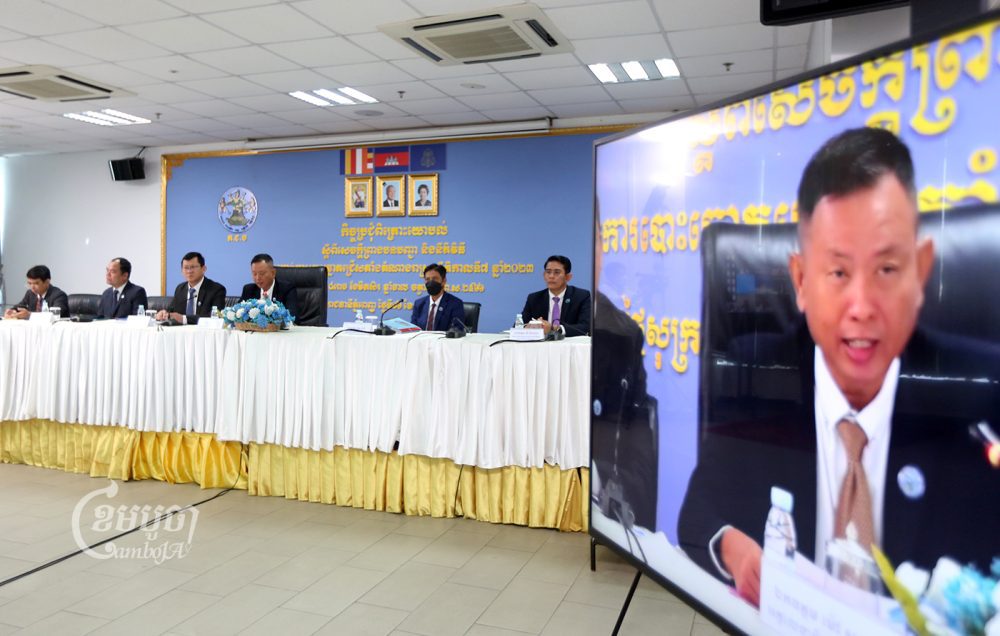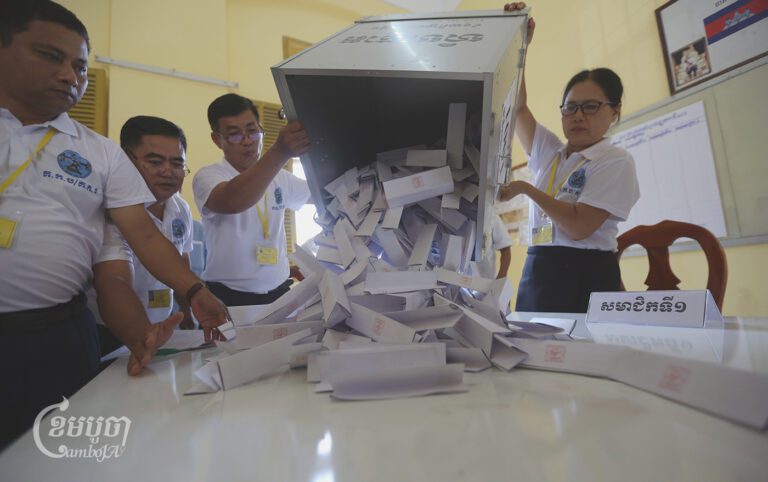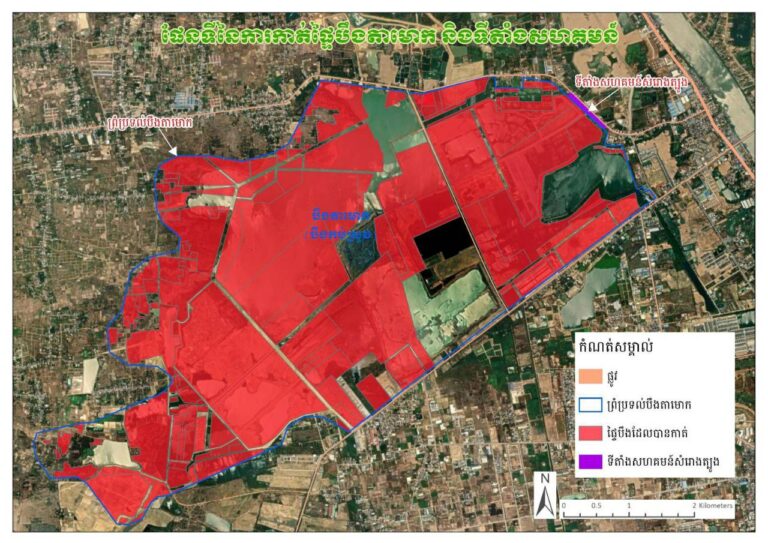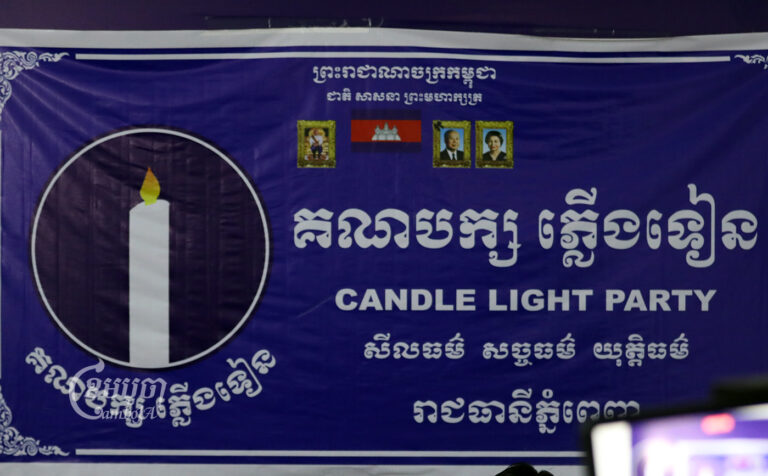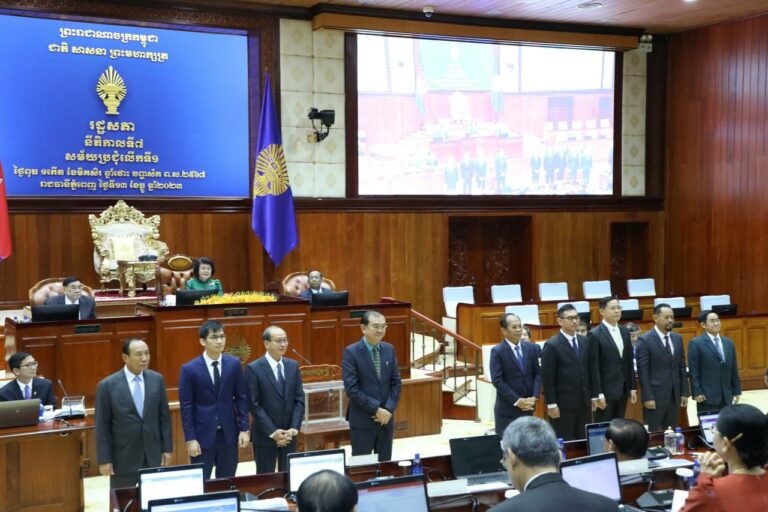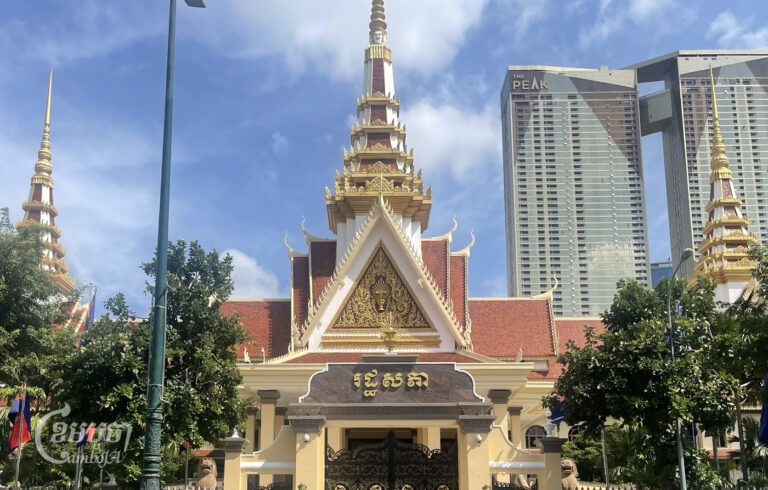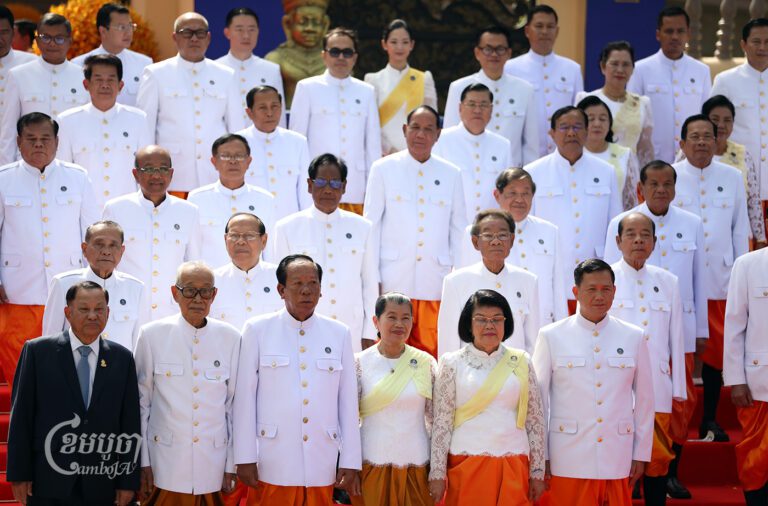As the National Election Committee (NEC) held its final consultation Friday on draft regulations for the 2023 election, the opposition parties urged several key changes that they say are necessary to ensure a free and fair election.
On Friday, the NEC said it had closed its consultation period and would be considering input from opposition, NGOs and others on its 97-page draft of regulations and procedures to govern the 2023 National Elections.
Thach Setha, vice president of the Candlelight Party, said his party had submitted 15 recommendations aimed at improving electoral fairness.
Setha said that among their requests is that authorities be banned from standing near polling stations, which they say can be perceived as a form of voter intimidation, and that doors and windows should stay open during the ballot count.
“The NEC’s compositions from top to bottom are from the ruling party while irregularities found during the commune elections have not been resolved,” he said, adding that the party is seeking assistance from foreign donors, including Japan, which is helping prepare the electoral regulations.
“It is necessary because even if we cannot urge for change in the composition, we need to think about some procedures that can be improved since it would affect the election process.”
Setha visited Tokyo last week and called for Japan to urge the Cambodian government to improve its political environment before next year’s general election, including by releasing prisoners of conscience and dropping all charges against them.
In October, Son Chhay, who is a co-vice president of the Candlelight Party, was found guilty of defamation in cases brought against him by the ruling Cambodian People’s Party and the NEC after he criticized the June 2022 commune election process. This week he was ordered to pay $1 million in damages to the CPP by the Court of Appeals.
“This is political pressure and I also raised the issue with the Japanese government,” said Setha.
In the recommendation submitted to the NEC, political parties are requesting a review of the NEC’s composition, which has at least four members affiliated with the ruling CPP.
An alliance of opposition political parties, including Candlelight Party, Cambodia Reform Party — both of which include former members of the outlawed opposition CNRP — as well as the Grassroots Democratic Party, have called for freedom for all political parties and an end to threats and lawsuits against opposition activists and politicians.
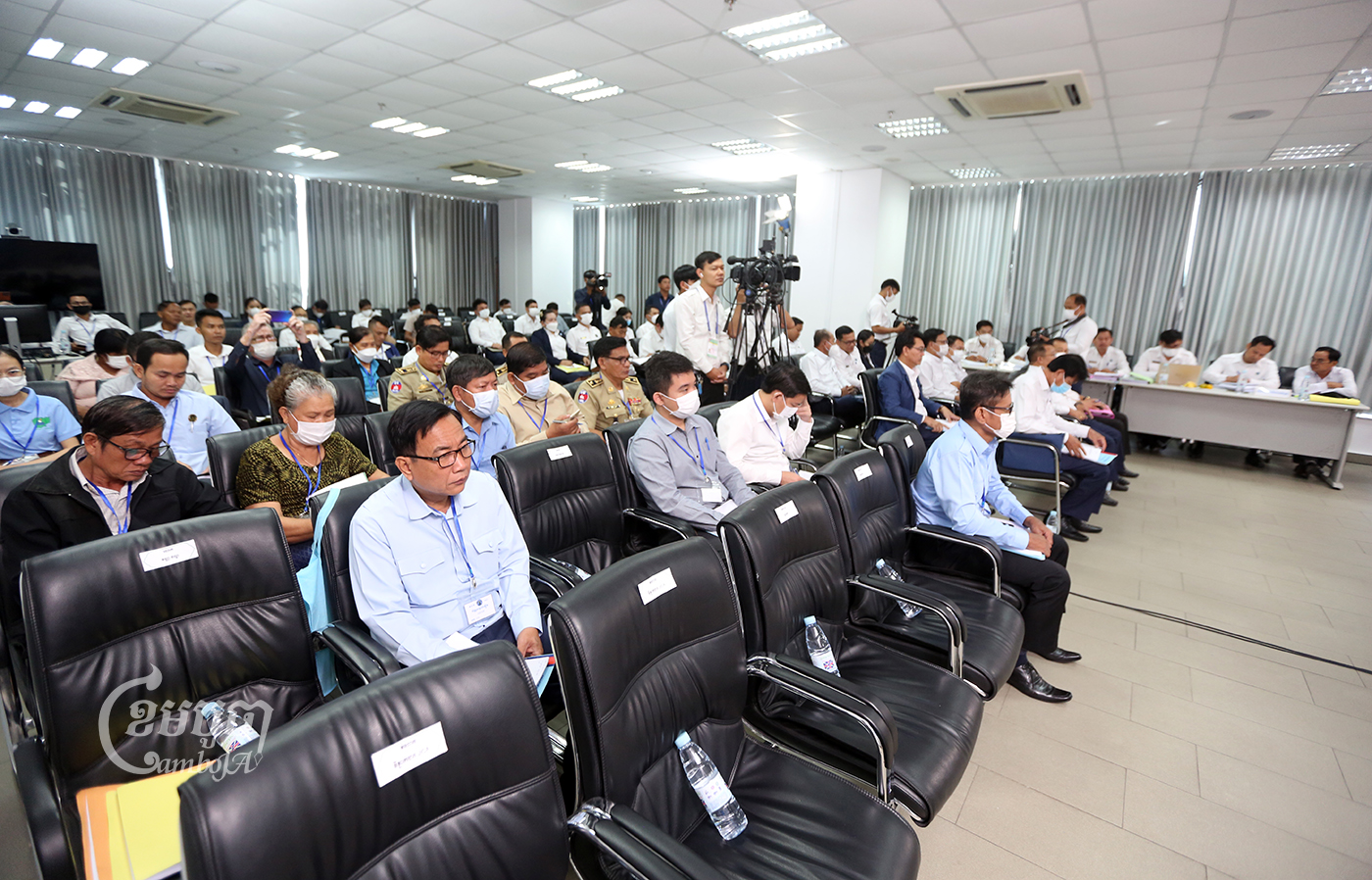
The parties have also asked that NEC rules bar party members from using mock ballots when showing would-be voters how to vote for them—which the CPP has done repeatedly in the run-up to elections—and ban authorities from being present at polling sites on Election Day to avoid intimidation of voters
Cambodia Reform Party Founder Ou Chanrath said the alliance of opposition political parties have demanded many times that some regulations and procedures be changed. But he said he was doubtful such changes would be made given the composition of the electoral body. The nine-member body is made up of four members chosen by the ruling party and four chosen from parties that hold National Assembly seats — all 125 of which are currently held by the ruling party.
“During the commune election, we noted that local authorities were present at the polling station while the NEC allowed CPP youth agents as observers and that they seem to have influence on the NEC staff at the polling station,” he said. “We have submitted the suggestions to the NEC for making reforms.”
Chanrath said the opposition parties have also asked for legal reforms that would prevent the government or courts from dissolving political parties, but the National Assembly has rejected the request. In 2017, shortly after the commune election, the Supreme Court dissolved the opposition CNRP, handing its seats over primarily to the ruling party.
“We already know that everything is in the hands of the ruling party so this is difficult for us,” he said. “We still think that NEC will not receive the trust from voters and that next year’s election will face criticism from the public and international community.”
Hang Puthea, spokesman for the NEC has defended NEC’s election regulation and procedures stressing that they are implemented based on law. However, he said the body will take into account the recommendations raised by concern parties
“We will see if the recommendations are in accordance with the law and under the NEC’s authority. We also need to see if the recommendations would make the election process better,” he said.
“I understand that this is always raised by those political parties,” he said, referring to criticisms made by the opposition. “They always raise the negative issue of the election while the NEC is working with experts from Japan in assisting the election process smoothly.”
Political oppression
The Appeal Court on Wednesday upheld a lower court ruling finding Candlelight Party vice president, Chhay, guilty of defamation against the NEC and the CPP and ordered him to pay 4 billion riel ($1 million) in damages. The damages represented an increase from the Municipal Court ruling, which ordered Chhay to pay 3 billion riel.
Em Sovannara, a political analyst, said while the Court of Appeal has the right to uphold the lower court decision, it doesn’t have the right to add heftier fines or sentences and that doing so represented a form of political intimidation.
“As more and more former CNRP officials joined the Candlelight, the party would become stronger, so the ruling party used various mechanisms that the public and the international community saw as pressure, and this will not improve the next year election climate,” he said.
He said the government has also failed to address concerns raised by the international community regarding the commune elections.
“The NEC must have a practical mechanism to respond to the demands of political parties,” he said.
CPP spokesperson Sok Eysan defended the court decision as a just one.
“The opposition group normally calls the authorities’ measures as political oppression, but we are the victim, and we demand [a response] according to the law. We are not abusing the law and it was not an act of political threat,” he said.
Eysan said any criticisms from the international community would not affect the country.
A number of EU lawmakers this week expressed concern over political repression in Cambodia, releasing an open letter sent to top EU leaders during Prime Minister Hun Sen’s visit to Brussels to join the ASEAN-EU commemorative summit.
“The upcoming elections will be a watershed moment for the Southeast Asian Nation which will define whether Cambodia will return to the path of constitutionally defined multi-party democracy, or it will further cement the authoritarian drift in the breach of its international obligations,” the statement said.
In the letter, the lawmakers said Cambodia’s human rights situation has reached a crisis point, with the government carrying out an intensified crackdown on the political opposition, journalists, and civil society under the guise of COVID-19 controls.
“In such an atmosphere, we do not recognize local elections are either free or fair,” it added.
After the commune elections, five election observer organizations released a report detailing irregularities including the presence of armed forces at polling stations and inadequate efforts to ensure voters were properly registered.
Korn Savang, an election observer with the monitoring group COMFREL, said improving the election regulations and procedures would address the political parties’ concern as experienced during the commune election
“If it is not changed or improved, it will lead to protests over the election results due to the doubts about the NEC’s neutrality,” he said.


